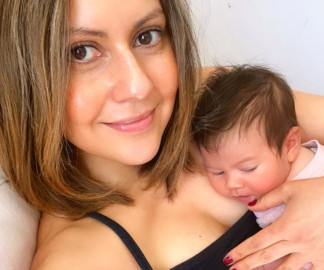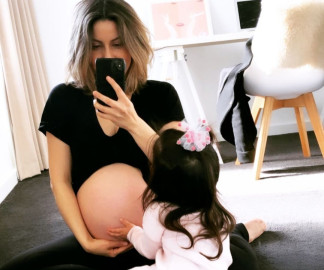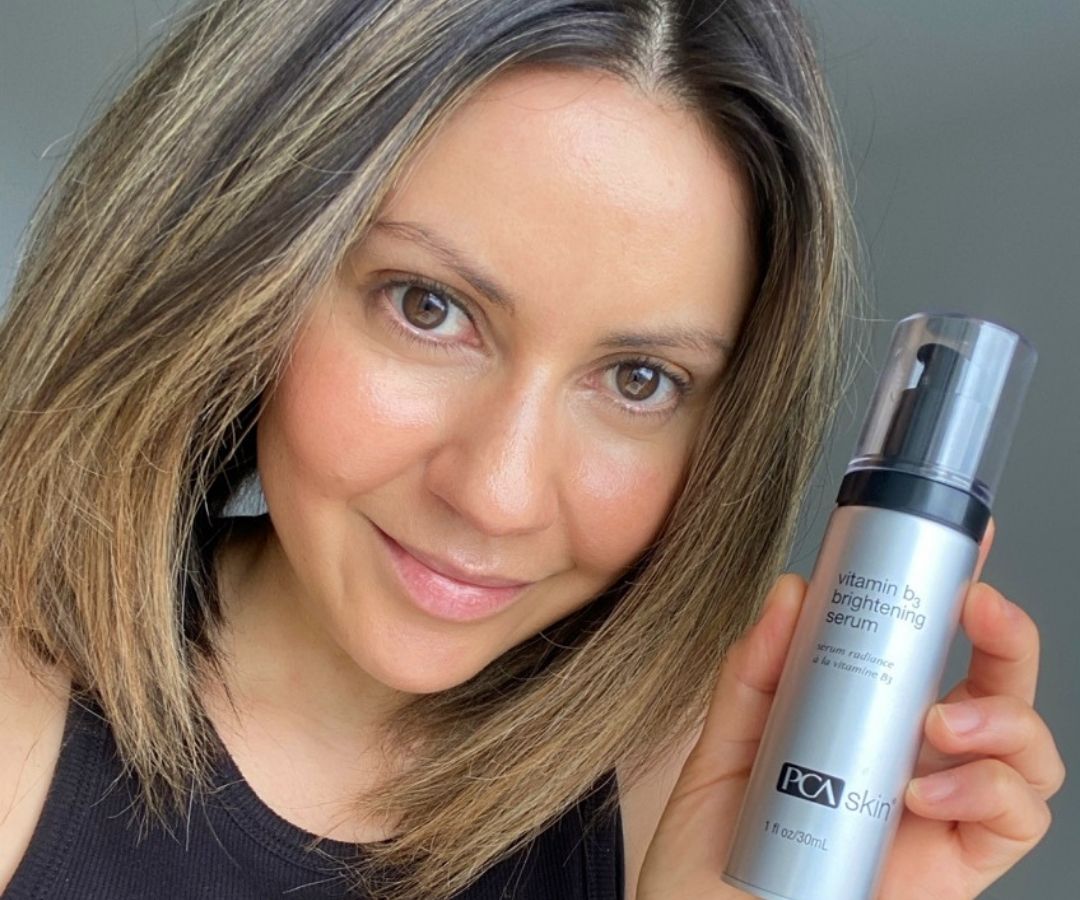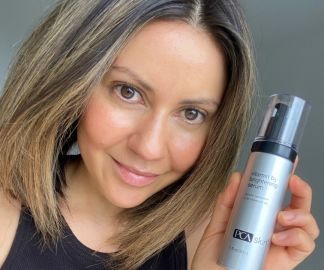
I never thought I’d have an intimate connection to pregnancy skincare... yet three kids later, here we are!
Turns out, being a dermal therapist and mum-of-three makes me especially qualified to speak about how skin changes during pregnancy.
Everyone's pregnancy skin experience will be different.
Some will have that pregnancy 'glow'. Others, a melasma moustache or pregnancy acne. Or both.
And fun fact, how your skin changes during pregnancy might even differ from your first pregnancy to your second (and your third, like mine did).
Despite looking after people's skin for a job, I've never been one of those glowy pregnant women.
All three of my pregnancies were incredibly hard, and my skin often felt wild and out of my control.
Unlike the number of cheese toasties I consumed, which was firmly IN my control.
Which was a weird thing in itself because I never eat cheese toasties... but that’s pregnancy for you.

Pregnancy can cause significant changes in the skin, but it'll also change your skincare routine.
Huh? Well, some popular skincare products like vitamin A aren't safe for use during pregnancy and while breastfeeding.
So, when literally everything is changing and you're not feeling great about your skin (along with many other things), how are you meant to treat your skin concerns?
There's a lot of fear-mongering and opinions to manage, but don't stress.
I'm here to tell you there are a few things you can do to look after your skin during pregnancy, as well as in the postpartum months that follow.
You can listen to our full pregnancy skincare conversation on the Dermal Diaries episode of Adore’s Bite-Sized Beauty podcast below.







